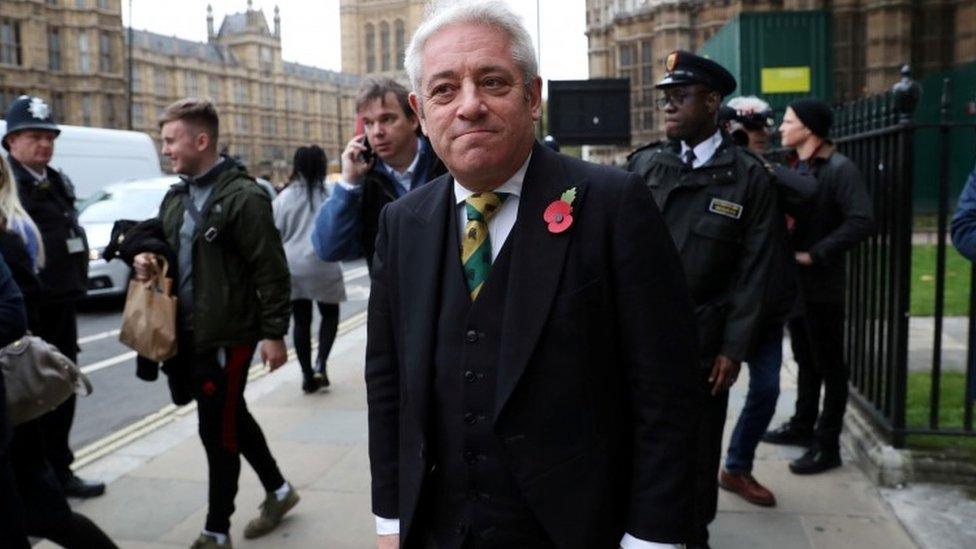Sir Lindsay Hoyle: What's the role of a Speaker in Parliament?
- Published
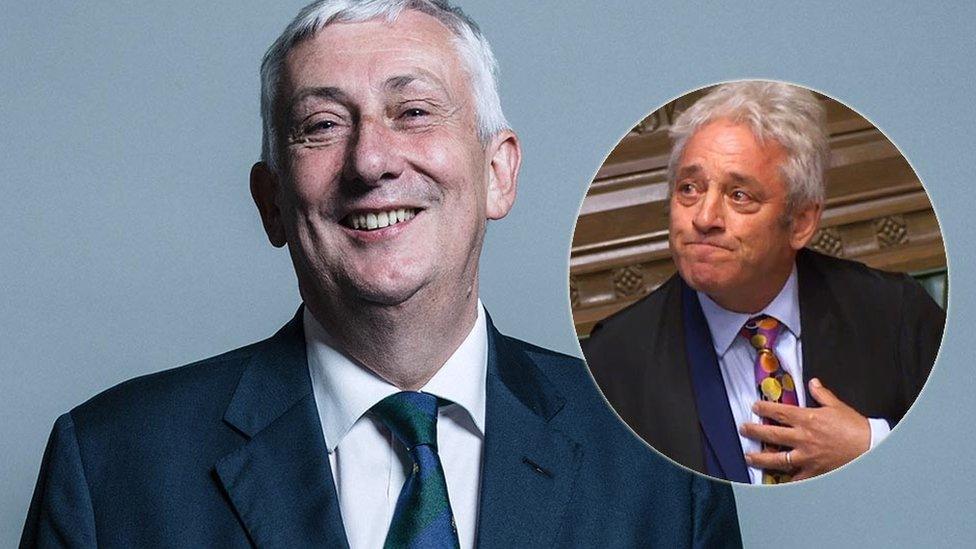
So there's a new person in charge of proceedings in the House of Commons.
Sir Lindsay Hoyle has been elected by MPs as the new Commons Speaker, after previous Speaker John Bercow stepped down.
You'll probably know John Bercow from the way he said "order" (pronounced "odd-DEURRRR, odd-DEURRRRR!") while trying to keep things calm and fair during discussions between the UK's political parties.
Since 1997, Sir Lindsay has been a Labour party MP for Chorley in Lancashire - but he will have to quit that job because the Commons Speaker must be impartial.
He was dragged to the Speaker's chair by two MPs, which is a tradition in the House of Commons when someone new takes the role.
Sir Lindsay Hoyle was dragged to the chair after his election after four rounds of voting.
As well as making a promise to be "neutral" and "transparent" Speaker, Sir Lindsay also paid tribute to his 28-year-old daughter Natalie, who died in 2017, during his acceptance speech.
"There is one difficult part I want to get over. There is one person who is not here; my daughter Natalie," he said.
"I wish she could have been here. She was everything to all of us."
Sir Lindsay Hoyle promised to ensure all MPs were heard
Now he's the Speaker, he'll be sitting in that all-powerful green chair - given by Australia - deciding which MPs are allowed to speak.
So here's a quick look at what the speaker does and what the role could mean for Brexit.
What's the role and why is it so important?
John Bercow's most memorable moments as Speaker of the House
Simply put, the Speaker is in charge of what goes on within the House of Commons.
If the Commons is the TV show Pointless, then the Speaker is Alexander Armstrong and Richard Osman combined. Imagine that for a second.
So that's why he or she will step in when things get too rowdy with the trademark cry of "order!". Contrary to popular belief, it's not because they're a fan of hors d'oeuvres.
Order! Order! Speaker shows he runs PMQs
By tradition, the Speaker is above politics and is supposed to represent only the rules and conventions of Parliament.
So when he or she is elected, they stop representing their party.
No disrespect
The title of Speaker dates back to 1377, and Sir Thomas Hungerford was the first.
Back in the day it was a dangerous game.
No fewer than seven Speakers were beheaded before 1535.
And in a nod to this traditional past, when a new Speaker is elected, they will be physically dragged to the Chair by other MPs.
Speaker Bercow dragged to the Speaker's chair
That's because when the Speaker would communicate the opinion of the Commons to the monarch - there was a chance of early death if the monarch disagreed with the message.
So you can understand why some previous speakers required a bit of gentle persuasion to accept the role.
The modern role of the Speaker being independent from political parties evolved in the 18th and 19th centuries.
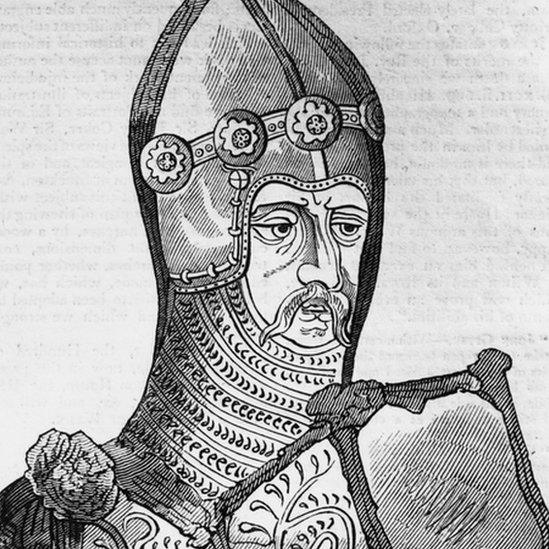
Sir Thomas Hungerford rocking his best Brexit expression

How was Sir Lindsay chosen?
The new Speaker was selected by MPs using a secret ballot system.
If a candidate gets more than 50% of votes, they're elected to the post.
But if no candidate gets more than half of the vote then there are more rounds of voting.
Those with the fewest votes are eliminated and MPs keep on voting until one person gets a majority.
Dealing with complicated controversies (mostly Brexit)
Much like John Bercow, Sir Lindsay is likely to have a big role to play regarding Brexit.
Mr Bercow was visible in the Brexit debate - and faced major criticism from Brexiteers who questioned his fairness.
For example, he didn't allow Prime Minister Boris Johnson to put his deal with the EU to a parliamentary vote after it had been rejected once.
He said the reason was because of a parliamentary convention from 1604, which says a motion can't be brought back if it's the same "in substance" as a previous one.
He also opposed allowing US President Donald Trump to speak in parliament in 2017.
It was called "an unprecedented and extraordinary rebuke" and "a diplomatic snub" by BBC political correspondent Eleanor Garnier.
MPs pay tribute to John Bercow at his last Prime Minister's Questions
Mr Bercow - who was in the job for ten years - described his role as being similar to a referee in an interview by the US broadcaster CNN.
"I'm a regular at my club with my son, a season-ticket holder at Arsenal," he said.
"There are 60,000 people in the crowd, who think they know better than the referee."
And that's something Sir Lindsay will probably have to follow, to keep some vital order in the House.
An earlier version of this feature was published in September 2019.


Follow Newsbeat on Instagram, external, Facebook, external, Twitter, external and YouTube, external.
Listen to Newsbeat live at 12:45 and 17:45 weekdays - or listen back here.
- Published4 November 2019
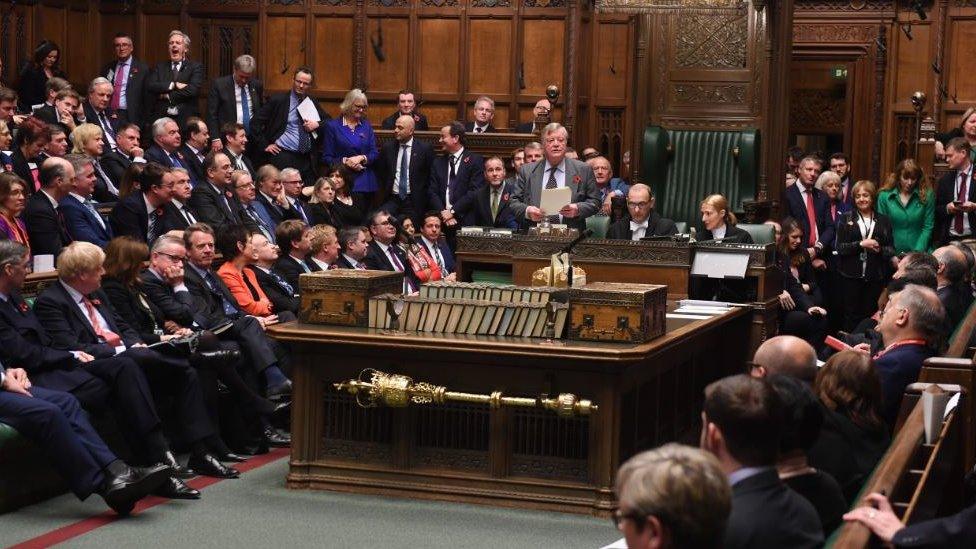
- Published13 July 2020
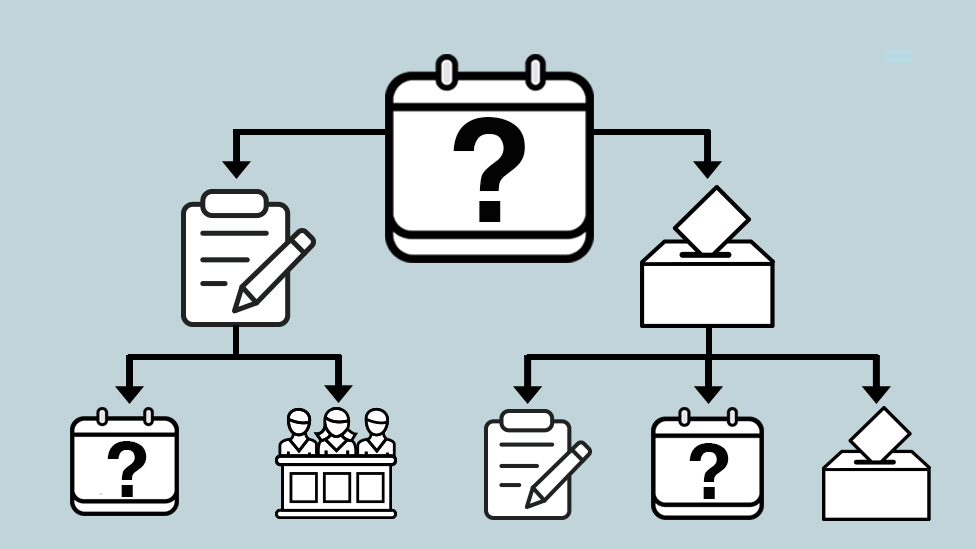
- Published3 September 2019
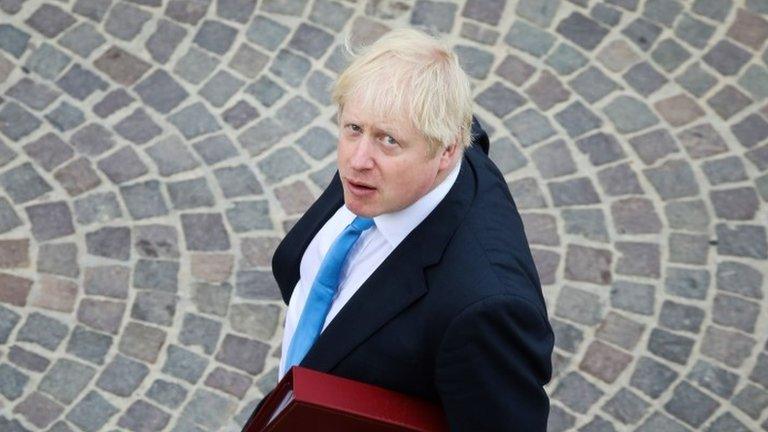
- Published9 September 2019
